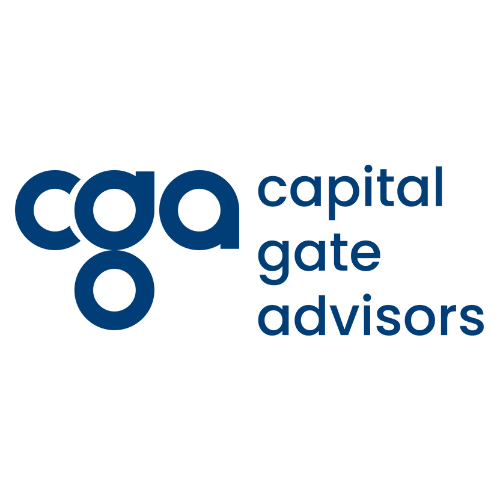By Wajih Halawa
October 9, 2024
The investment landscape in the Gulf Cooperation Council (GCC) region feels more vibrant than ever. The past couple of years have brought an unprecedented influx of institutional investors, such as hedge funds, private equity firms, venture capital platforms, asset and wealth managers, and family offices. Dealmaking is brisk, IPOs and debt issuances are oversubscribed, and dividend payouts are looking healthy, luring investors from all over the world.
In addition, more multinational corporations and global consultancies are seeking new markets in the region and many are moving their headquarters here or choosing the region as their global launchpad. The UAE and Saudi Arabia, in particular, have become key destinations for global capital and strategic expansion. Although these markets are introducing more sophisticated frameworks and ecosystems that are on par with global standards, newcomers must prepare to effectively navigate the unique opportunities and challenges in these rapidly evolving markets. The GCC region has long been synonymous with abundant natural resources and energy wealth. However, over the past decade, its member nations – Saudi Arabia, the UAE, Qatar, Bahrain, Kuwait, and Oman – have increasingly positioned themselves as attractive hubs for international business, finance, and investment. Their increased appeal to global players is driven by ambitious economic diversification agendas, long-term political stability coupled with pro-business reforms, and the continued importance of the region’s strategic geographic position.
Opportunities and Challenges: Why New Entrants May Struggle
While opportunities are abundant for new investors and corporations, many underestimate the complexities of operating in the GCC. Despite the region’s outward openness, the reality on the ground is nuanced, and missteps can be costly. For starters, this part of the world has long been misunderstood by those who have not visited or worked here. It’s common for newcomers to assume that a ‘one-size-fits-all’ strategy will work across the GCC region. However, each country operates with distinct regulatory frameworks, political systems, and cultural norms. Saudi Arabia, with its young, burgeoning population and massive state-driven “giga-projects” like NEOM, presents different opportunities and challenges compared to the more cosmopolitan, service-driven economy of Dubai or the relatively steady-paced economy of Oman, to name a couple of examples.
Within these contexts, a common mistake is approaching business relationships in the GCC with a purely transactional mindset. The region places significant value on trust, relationships, and long-term commitments. Establishing rapport with key stakeholders—whether government officials, family-owned businesses, homegrown conglomerates, or local communities—requires investing time and effort to understand cultural contexts. A purely transactional, business-first approach could alienate potential partners and undermine long-term success.
In addition, navigating the often-complex regulatory environment in GCC countries can be a challenge. Differences in laws, disclosures, and governance between various GCC states require in-depth knowledge of each market’s political and legal nuances. Investors who fail to engage early with regulators or ignore compliance issues could face roadblocks that jeopardize their market entry or expansion efforts.
Bringing all this together is advisory support that provides valuable guidance and offers experience-based recommendations. Many companies turn to familiar, global consulting brands to provide them with strategic counsel when entering the region, and several of those that have operated in the region for a long time have succeeded in localizing or regionalizing their services. Having the right type of advice, particularly from homegrown professionals who are experienced locally and internationally, means better reading ofcultural sensitivities, local governance structures, and the role of informal networks, all of which play crucial roles in market success.
Working in the GCC is a Long-Haul Commitment
To succeed in the GCC region, companies must adopt a more thoughtful and committed approach. It is essential for them to develop a deep understanding of local markets, including economic drivers, social customs, and political structures. Engaging with regionally based advisory firms, hiring local talent, and leveraging local networks can provide valuable insights that global firms may not offer. In addition, tapping into resources such as chambers of commerce, local business councils, investment promotion boards, or government entities can help guide the process.
Business in the GCC is driven by trust and reputation. You have to genuinely care about these markets and show your clients what you are doing about it. Take the time to build personal relationships with key stakeholders in government, local industries, and family- owned businesses. Demonstrating long-term commitment—beyond short-term profits—can unlock significant opportunities. Frequent presence in the market, engaging in local initiatives (or launching your own), building a new generation of homegrown professionals, and participation in key events can help establish credibility.
Companies need to tailor their strategies for each market’s regulatory landscape, economic priorities, and cultural nuances. For instance, the path to success in Oman’s smaller market may involve focusing on niche sectors like logistics or renewable energy, whereas in Saudi Arabia, aligning with large-scale government projects could be key.
As global interest in environmental, social, and governance (ESG) factors grows, GCC governments are also emphasizing sustainability, diversity, risk management, and compliance. Investors should prioritize ESG considerations in their regional strategies, aligning themselves with national sustainability goals. This is particularly relevant given the GCC’s push for renewable energy, environmental protection, and responsible business conduct.
Most importantly, patience is key when entering GCC markets. Companies that rush in with aggressive growth plans without taking the time to build a proper foundation may struggle to achieve long-term success. Building a solid regional presence requires strategic, phased investments and a strong understanding of local timelines.
Final Thoughts
The GCC is in the midst of a significant transformation, and for investors, family offices, and corporations looking to capitalize on the region’s potential, the rewards can be substantial. However, success requires more than just capital or expertise. It demands a commitment to understanding the local context, building relationships, and crafting tailored strategies that align with the region’s unique dynamics.
New players must be mindful not to replicate missteps from other markets. By investing time and resources into understanding the region, forging meaningful partnerships, and demonstrating a long-term commitment to sustainable growth, companies can position themselves to thrive in one of the world’s most dynamic and promising regions.
Wajih Halawa is a Managing Partner at Capital Gate Advisors, an expert-led strategic communications consultancy in the Middle East.
*Views expressed are those of the author and do not necessarily reflect the views of the firm.



